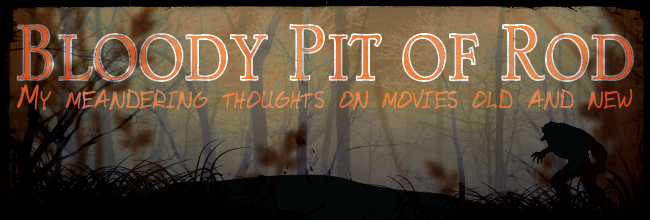Starting in the late 1950's with his starring roles in a
pair of William Castle chillers, Hollywood
character actor Vincent Price moved from supporting player to bona fide horror
movie star. When Roger Corman cast him in the first of his series of Edgar Allan
Poe adaptations his place as one of the greats of the genre was cemented. Over
the next decade Price would star in many great and not-so-great horror films
but in all of them his acting style was that of man projecting to the cheap
seats. That's not to say he wasn't good in these roles — he was fantastic. But
nearly all of these stories asked for their star to slice off juicy chunks of
ham and serve them up with a wink and a smile. This was exactly why director
Michael Reeves did not want Price as the star of his third film, Witchfinder
General. Reeves' film was to be a serious story about a sadistic, wretched man
and having the audience think it was all in fun was the opposite of his
intention. So when he was forced to cast the star in the lead role, Reeves
pushed him hard to get a somber, grim portrayal of historical figure Matthew
Hopkins. By all accounts Price was initially unhappy with his young director's
tightfisted control but, regardless of the personality clash on set, he gives
one of his most brilliant and chilling performances in the movie. I hope he
appreciated the role and Reeves' choices when he saw the complete film.
Away at war, Richard hears of the trouble at home and rushes
back to find Sarah. Getting the whole story from her he pledges his love by
marrying her in the ruined church and vows revenge on Hopkins . Unfortunately Richard's duty as a
soldier keeps him from immediate pursuit. But when he learns that his enemy
is doing his cruel work in the town where Sarah is now hiding, he seizes an
opportunity and goes after him.
Structured much like a western, Witchfinder
General (released in the states as The Conqueror Worm) tells a great,
simple story of power abused and rightful (even righteous) vengeance. Stocked
with great British character actors, filmed on beautiful locations and graced
with a quick pace and compelling story, the movie makes you sad that it was
Reeves' last project. The talent on display here points toward a fine future
career that the world was robbed of by his death. As the star of the film Price
gives one of his most controlled and chilling performances as the heinous
Matthew Hopkins, showing how good he could be outside of the playful style he
had used so effectively in the Corman Poe films. He plays Hopkins with nary a smirk or arched eyebrow,
which has the effect of making him seem positively demonic at times. When he
tells a villager to bring two young accused witches to his bedroom, his off
handed way of justifying this obvious sexual ploy is unsettling. This isn't
simply a man who thinks he's doing God's work but unintentionally spreading
pain and misery — he knows full well what he's doing. He is evil of
the worst sort, sadistic hatred hiding behind a mask of self-righteous piety.
His oft repeated phrase to his various helpers in torture is "You're
doing God's work", but no Christian God would smile on this man's knowingly
merciless deeds.
Price is onscreen for less than half of the film's running
time but his presence is felt every second after we first witness his cruel methods
of extracting confessions. That his henchman Stearne is even more of a sadist
barely held in harness by his master increases the dread any time either of
them is seen. This film is a sharp departure in tone from what Price was doing
in horror in the 1960s but he rose to the occasion and the results are
fantastic if truly dark and grim. I can understand fans of the Corman movies
finding this film distasteful and even repulsive. It is harsh stuff, with no
sense of humor and a bleak ending. But for genre fans it's an essential film
well-deserving of the fine reputation it has earned.














4 comments:
I like as watching Mark of the Devil with this one. Also, I believe Price wrote a letter to Reeves after he saw the film.
Yes - from what I've read Price loved the film and wrote a note saying as much to Reeves. Such a shame he passed away without making more films.
They were set to make The Oblong Box if I'm not mistaken. Do you like Reeves other films?
I love Reeves' other films. I think he got better as a filmmaker with each one, learning as he went. That's why its such a shame that he died so young - he had so much promise for the future.
Post a Comment